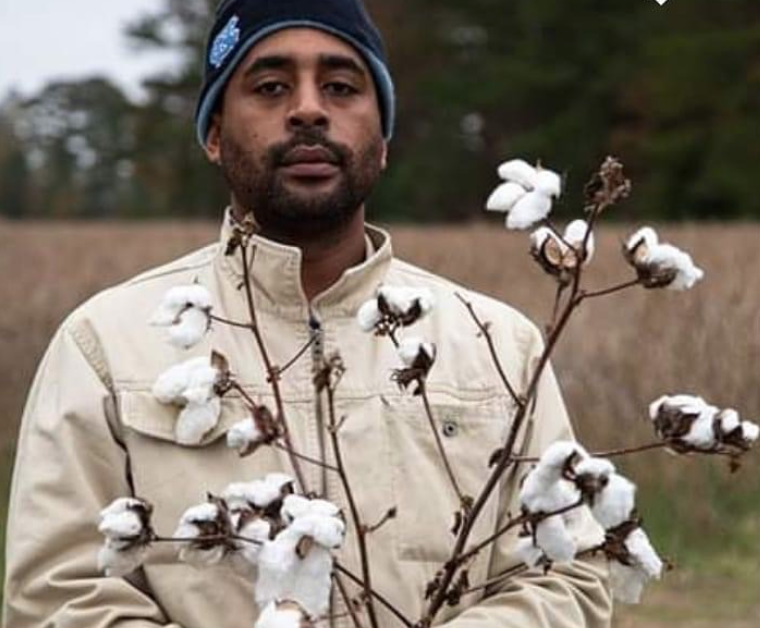Connecting the Community to Culture through Black Cotton
July 14, 2020
Julius Tillery is making cotton farming cool. As a fifth-generation cotton farmer, Julius Tillery wanted to take his family’s farm and turn it into a trendy, sustainable business. His idea? Growing cotton for the purpose of art and decor. “We have created the coolness and excitement around raw cotton, where people can see it as a positive idea,” says Julius. “We’re the strongest brand…We stand in front of our raw cotton, we want people to know that we are the providers of this raw cotton.” It’s this excitement that has allowed Black Cotton to expand its sales to over 40 states and has branded Tillery as a titan in the cotton industry.
Julius Tillery graduated from UNC-Chapel Hill in 2008 with a bachelor’s in economics; he then used his family farm to create his cotton enterprise that now sells at vendor events, consignment shops, online, and in their office. However, Black Cotton is still in its development stage; Tillery is trying to grow its presence in brick and mortar stores nationwide, and he is eventually looking to build a shipping center out West. “As a small business it’s hard to continue to make good profit margins if you don’t understand the logistics of the product you are shipping nationwide,” says Tillery, and it is this understanding that has allowed him to be successful in expansion.
Tillery emphasizes the impact of Black Cotton on the local economy, ensuring that he uses the company to help reduce poverty and promote prosperity in the area. Tillery’s decision to create a sustainable business incorporates the three main principles of the Triple Bottom Line: environmentally, economically, and socially sustainability. He ensures that his shipments reduce pollution as much as possible, his money is invested back into the community, and his employees make a living wage. His connection to the land goes back generations, and he intends to continue this legacy by expanding his cotton company nationwide. Despite his cross-country success, however, Tillery still prioritizes his connection to his community. He runs tours on his farm for youths, elderly, and tourists to educate people on “what cotton means to African Americans now and what it has meant to us historically”. Tillery stays active in his town by attending meetings and participating in civic events, as well as just generally advocating for Black farmers, especially Black cotton farmers.
For Tillery, the future of Black Cotton is bright. Next up for the young entrepreneur is an expansion into the textile industry, starting with yarn and eventually making his way into the clothing sector of cotton. He is always looking for potential partners, as long as they hold the same principles of equity that he promotes, and he is excited for the next step in his undertaking. Tillery is proud of the company he has created, and this pride is reflected in the success of Black Cotton. You can find him on his active social media pages, including Instagram, Twitter, and Facebook, or visit him on his website.
About the Author
Lauren Hall, Environmental Studies, Class of 2023
